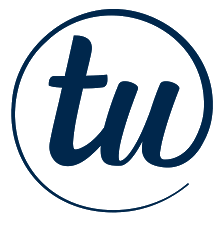“At first, it feels like you’re making a short film with friends, but it’s your job. And every day you’re just seeing the footage, but it doesn’t feel like something people would watch. Then we got into ADR, and we had to bring in 30 guest stars or celebrities. They were just laughing. It made me think, ‘Oh, wow! This is exactly why I wanted to get into the industry.’”
Angelyn Rodriguez is a CTVA graduate of Cal State Fullerton. Since leaving Fullerton, she has worked as a Post-Production Assistant and Supervisor for Marvel, HBO, and FX.
Kemdi:
I did some research on you previously, and I resonated a lot with your career story and your original goal of wanting to be a teacher, as I wanted to be one too at one point. What inspired the change?
Angelyn:
I wanted to be a teacher because my mom taught in the Philippines. I have memories of pretending to be a teacher as a kid. At school, they would ask what we wanted to be when we grew up, and that was the answer that always popped in my head. At the time, I just thought the structure of school made sense to me. When I got to high school, I just learned a lot more about how much teachers made, and it’s not really where my heart was. I still lived in the construct of what I thought my parents thought I should be doing with my life, which was finding a stable job that earned a lot of money. So, I decided the next best step for me was to become an occupational therapist.
I applied to Cal State Fullerton as a psychology major, and then the summer right before my freshman year of college, I was like. I don’t feel like going to school for so long and getting my PhD. For a profession that I’m not that passionate about. So, then I thought, what do I do? I mean, I like to record videos when I travel and then edit them, maybe I could make editing a career. I knew that editing was a profession in the entertainment industry, but I just didn’t know the extent of all the jobs that were out there. I knew I liked to edit, and I get in the Zone when I edit, so let me see if I can make something out of this. From there, I switched my major to Cinema and Television Arts.
Kemdi:
You talked about not knowing a lot about film terminology but enjoying editing. Do you think it’s important to have a particular niche or be a jack-of-all-trades when it comes to film roles?
Angelyn:
I think once you’re at a collegiate level, I think it’s good to know kind of where your interests lie and what you kind of want to focus on. I also think since you have the resources and the people around you and your professors to help you, I think it’s good to explore a little bit. I only had one editing class and a lot of my film classes were everything but editing. Once I got to take an editing class, it’s kind of just solidified that it was what I wanted to do. I think it’s valuable to know what you want to do, but that’s not to say that there’s anything wrong with being interested in different parts of production or post.
I know people who started on the production side, started in writer’s rooms, and then took up a job as post-production assistant and ended up becoming editor, and I know people who went the post route and then found themselves in a writer’s room. I think it’s good to know what you want to do and what your interests are, but it’s also not. If you find that your interests lie somewhere else, then you do that too.
Kemdi:
College is a big change; you go from just having school and somewhat of a social life to both of those, alongside entering the workforce. How did you manage the three during your time at Fullerton?

Angelyn:
The good thing about my life at the time was that I worked at one of the Starbucks on campus, and so they were good about getting your class schedules and then working your hours into your class schedule. So, there was never really an oh, I work too much, so I can’t go to class, or like I’m at class, so then I can’t make it to work just because everything was in one place. I felt lucky to find and to be able to work at a place that puts school first. In terms of a social life,
I lived right off campus, and I had 3 other roommates that I was friends with. So even if I didn’t hang out with my friends who were from my hometown, or had time to hang out with people who were from my classes. I could. I knew that I could always go home and hang out with them. My last year was during the pandemic, so there was no point in my trying to balance anything. I only had classes, and then I was just at home, and I wasn’t even working because Starbucks shut down at school.
Kemdi:
I’ve heard from a few graduates that post-grad depression hits hard after you leave college. How did it affect you, and how did COVID play a role?
Angelyn:
There was a period of post-grad depression, but the pandemic had already been in effect by that point,t and I had a full semester to get used to online classes. I still talked to people from school through social media and made sure to reach out. I knew the world was going to reopen again, and I made an effort to talk to as many people as possible in the hopes of finding a job afterward.
I also feel the pandemic helped because there was less pressure to find a job immediately afterward, and the job market was just so bad that nothing was being made. So, if I didn’t find one, I did not feel like a disappointment, or that I was falling behind.
Kemdi:
Being a CTVA major, you’re required to complete an internship before you graduate. What was your experience in applying and working as an intern? How did it prepare you for future career applications and roles?
Angelyn:
I only had one internship in college, and it was for a book publishing company called Square Tree Publishing. It was a small company that needed a production intern. I was just able to contact the CEO through the website and set up a phone interview where I was offered the position. But basically, you’d be making marketing content for the company. So, you would film videos for Instagram, Facebook, and other social media platforms and help maintain their pages by making graphics and posting. Because it was a small company, I was the only intern at the time. I was able to create my schedule, and it led to me becoming better at staying organized and producing content.
Kemdi:
When you started applying to positions during your post-grad era, how did you prepare in terms of a resume and a portfolio?

Angelyn:
So, when I graduated, I knew that there were not a lot of jobs out there. At first, I started just coldly applying, but then I realized that the issue was my resume, which was just kind of going into the void, so to speak. So, I spent a lot more time on how I presented myself. I built a LinkedIn profile,e and I would cold message people on LinkedIn. I would say, hey, I recently graduated from Cal State, Fullerton. I’d love to learn about your story, and how you got your foot in the door like I’d love to learn more about editing, or I’d love to learn more about marketing, whatever they are. I would meet anybody and everyone that I found on LinkedIn.
I would find them by looking at the companies that I wanted to work at, or the studios, and then I would look at their employee list, and then just pick people. Since the pandemic was still ongoing, people were more willing to talk to you because they also weren’t doing anything. So, I would have 2 or 3 informational Zoom interviews in a day of just chatting with people. The rest of the time, I’d apply for production assistant roles when they became available at the specific studios I wanted to work at.
At the time, I wanted to be an animatic editor, but I had no experience. I figured my best course of action to show people that I wanted to be an animatic editor without having that kind of experience was to make a website talking about what I wanted to do, and then showing the kind of work that aligned with being an animatic editor, even though it wasn’t that. I would edit my animations from other people’s storyboards that I would take from Google. I’d show them off to other animators I knew to get their opinion. One of those connections I knew ended up helping me get my first job.
Kemdi:
Can you talk about your most memorable experiences from the jobs you’ve had?

Angelyn:
I have got a few. My first post-production assistant job was on History of the World Part II, a sketch comedy show with a bunch of guest stars. The ADR (Automated Dialogue Replacement) portion of the post was my favorite part of that show because what we were doing was so rewarding. At first, it feels like you’re making a short film with friends, but it’s your job. And every day you’re just seeing the footage, but it doesn’t feel like something people would watch.
Then we got into ADR, and we had to bring in, I want to say, 30 guest stars or celebrities, if you will. They were all just watching the cut so they could do their ADR, and they were just laughing. It made me think, Oh, wow! This is exactly why I wanted to get into the industry. Not only do I get to react to people watching something that I contributed to, but they’re also people who are respected in the industry.
Another memorable moment was getting invited to my 1st wrap party with Marvel, where our actors were there. All the editors got to take pictures with them. It was just a surreal moment that I’ll probably never forget because the post team doesn’t usually get invited to wrap parties, so it could be my first and only wrap party.
Kemdi:
In terms of defining your work with Marvel and FX, is it more contract work or a part-time/full-time job?
Angelyn:
Whether you are on the show side or the project side, you’re typically a contractor. So, it’s usually always contract-based. Even post-producers are contract-based. Once you get to the studio level or the network level, that’s where it’s more employee-based. It’s funny because my dad wants to make sure that his daughter is fine and can sustain herself. He always asks me, Hey, are you an employee yet? Do you work at Disney? I have to say, no, I’m a contractor, and I probably always will be if I want to work on the show.
Kemdi:
In terms of career goals, have you already achieved where you want to be, or do you have higher peaks you want to reach?

Angelyn:
My end goal would be to be a post-producer for an animated film. That’ll be one day though. I’m enjoying my current post-coordinator role, and I’ll probably be in a live-action post for a while. My current goal is to master post-production.
Kemdi:
Throughout your career journey, have you ever faced any setbacks? If so, what motivated you to overcome them?
Angelyn:
I’ve been through enough post-work to usually know what to expect. However, when I first started, I didn’t know anything about post management. I had to learn about VFX and music, scoring, and graphics, all the stuff that comes in post, and legal stuff too. It was a big learning curve.
Also, being a contract worker makes your stability kind of non-existent. Near the end of a show, you’ll always be on your toes. It motivates you to do a good job because you want the people around you to see that and want to hire you again.
Kemdi:
Did you have any mentors throughout your journey, and if so, did they impart any wisdom or advice that you took with you?
Angelyn:
One of my first industry mentors was my post-producer for History of the World Part II, Trish Hadley. She’s the first person I got to observe in post-management, and she was on top of everything. She knew how to talk to people, how to talk to producers, how to talk to talent and vendors. She just knew how to build a team, and despite all the stresses and craziness that happened with posts, and continuously lifted everybody.
She took me under her wing and took the time to explain things to me, help me learn, or give me tasks that weren’t necessarily just getting lunch. She allowed me to have a hand in the post and the show and give creative notes. She’s just a badass and is the kind of person and post-producer that I want to be when I grow up.
Kemdi:
You mentioned how difficult and stressful post-production can be. What are the methods you use to destress from that environment?
Angelyn:
Well, for one, I’d stop working. I feel like that is an important thing that I had to learn as time went on, and with the more projects I worked on. The show or movie is getting made, no matter what. Once it hits 6 pm, I just shut off my laptop. Granted, there are pressing issues that come up in post, but I just remind myself that it’s just a tv show or movie, I’m not a doctor saving lives. I just disconnect from everything and spend time with my family and friends. I also feel that once you get into the bulk of the post process, it’s hard to get a lot of sleep, so prioritizing sleep has been a good way to relax, I guess.
Kemdi:
In terms of location, how important is it to live close to where your industry is, in this case, Los Angeles?
Angelyn:
In terms of production, if LA becomes the hub of all film productions like it used to be, it would likely be wise to move. In terms of post, I currently work entirely remotely, so I’ve been able to work from Portland and Tokyo. It’s not necessary to be in LA if you are on the post side. The only real struggle is time differences. Being in person is a plus because you get to hang out, connect with coworkers, and make industry connections easier.
Kemdi:
What advice do you have for anyone interested in pursuing a similar career path to yours?
Angelyn:
Do not take things too seriously. at the end of the day, it is better to create an environment you enjoy being in. I think that effort shines through in what you’re creating and that, as a result, brings joy to those who watch your stuff.
Kemdi:
Thank you for taking the time to speak with me, Angelyn. Is there any way readers can reach you?
Angelyn:
Yes, my LinkedIn is https://www.linkedin.com/in/angelynrodriguez/



